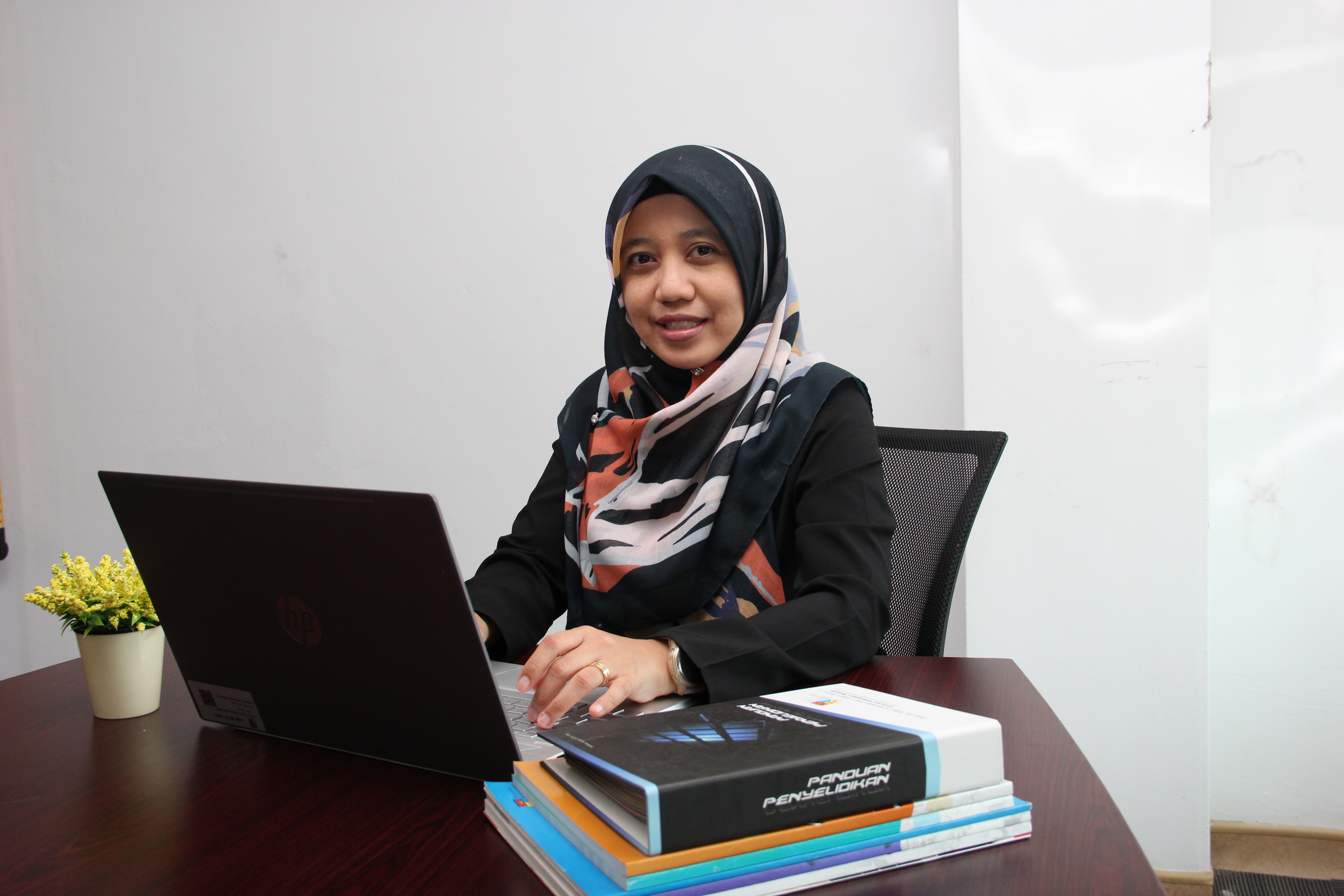Using blockchain to enable intelligent transportation systems for a sustainable society
Mobility as a service (MaaS) redefines vehicle usage and ownership by integrating end-to-end trip planning, booking, payment services, and solutions across all modes of transportation. Dr Fadzilah’s project focuses on the use of blockchain technology, with security mechanisms executed on the edge that can directly connect travellers to different transportation providers in a more efficient manner. This removes the need to transmit to centralised servers, supporting the Academy’s strategic goals of a sustainable and inclusive society.

An international education
Currently an associate professor at Universiti Kebangsaan Malaysia (UKM), Bangi, Dr Fadzilah has 20 years of experience in wireless communications. She has worked and studied in both Malaysia and the UK, and this has enabled her to be involved with several national and international projects.
Her current project, ‘Blockchain-based Mobility as a service: the future of intelligent transportation systems for a sustainable society’, is supported by the DIA programme. This aids collaboration with Dr Zhengguo Sheng at the Centre for Advanced Communications, Mobile Technology and IoT at the University of Sussex in the UK. Dr Sheng is part of the team leading the EU’s H2020 SEEDS project, ‘A holistic design of secure vehicular networks: communications, data caching and blockchain services’. The team believes that this blockchain-based MaaS project is a direct extension of the H2020 project scope. The DIA programme provides visiting academics from UKM with opportunities for collaboration with one of the top universities in vehicular communication research, which also helps raise the profile of UKM's research in this area.MaaS is an effective technology to revolutionise vehicle ownership and traffic management challenges leading to better environmental sustainability. However, current MaaS systems depend on a central operator to manage and control the connections between transportation providers and passengers. The project’s main objective is the use of blockchain technology to directly connect travellers to different transportation providers in a more efficient manner, without the need to transmit to centralised servers. The blockchain technology uses smart contracts and voting mechanisms executed on the edge that can directly connect travellers to different transportation providers.
“The DIA programme provides visiting academics from UKM with opportunities for collaboration with one of the top universities in vehicular communication research, which also helps raise the profile of UKM's research in this area.”
Tackling the challenges of transportation
With blockchain MaaS, synchronised journey planning across various public transportation providers including bicycle, bus, train, taxi, and e-hailing is possible. The project is aligned with the UK’s ADEPT Live Labs 2 challenge, ‘Decarbonising local roads in the UK’, for Brighton and Hove City Council, where the University of Sussex is located.
Currently, the team is working on a systematic review of existing MaaS strategies globally. The outcome from this activity will be an analysis of barriers to adoption of MaaS and potential mitigation strategies. It will also include a review on the need for MaaS from the perspective of stakeholders, such as existing transportation providers and service platforms. The project will then develop a case study on strategies for MaaS solutions in Malaysia and UK, a blockchain-based MaaS framework based on smart contract and voting mechanisms, and optimal market penetration strategies of MaaS.
This project will contribute to the wider adoption of blockchain technology in the transportation sector. By showcasing the benefits and potential applications of blockchain in MaaS, it can inspire other organisations and governments to explore and implement similar solutions. This can improve transportation services, reduce travel times, and increase customer satisfaction. The shared mobility and use of public transportation can contribute to reducing the number of private vehicles on the road, leading to improved air quality, reduced carbon emissions, and environmental impact, thus promoting the Academy’s strategic goal of building a sustainable society.
Related content
DIA awardees
Distinguished International Associates (DIA) are international engineers working across all sectors. They work at the c…
FAQ
Information and answers to common queries about the Distinguished International Associates (DIA) Programme
